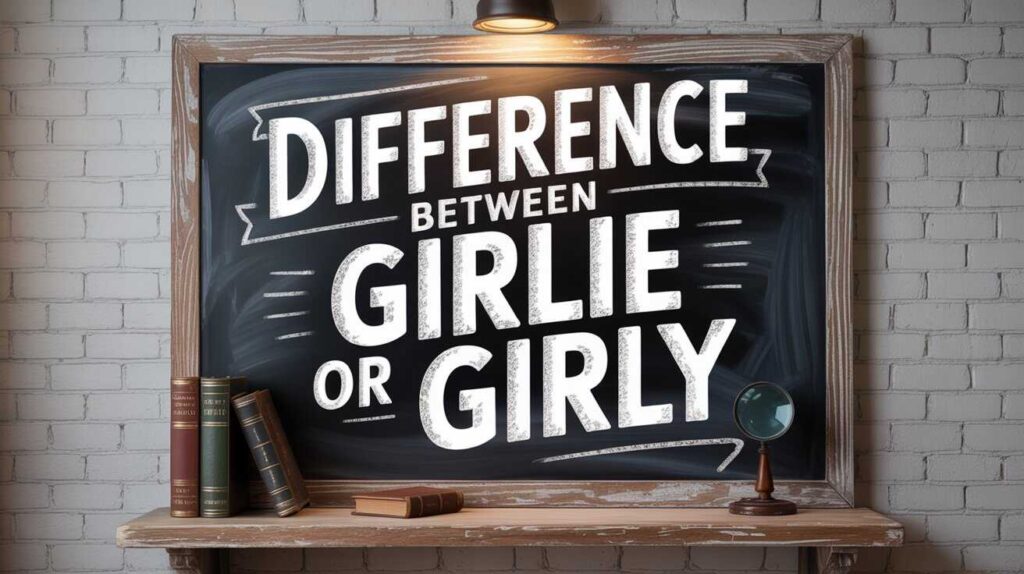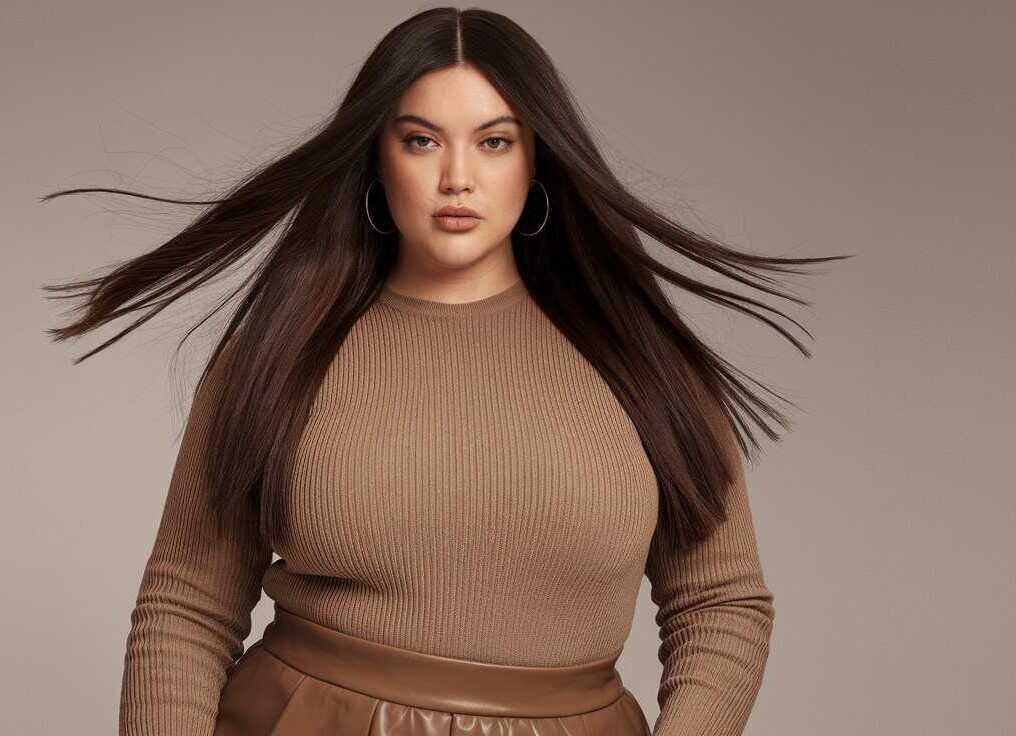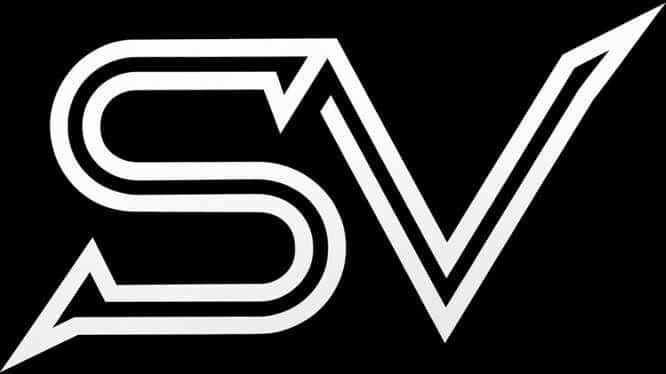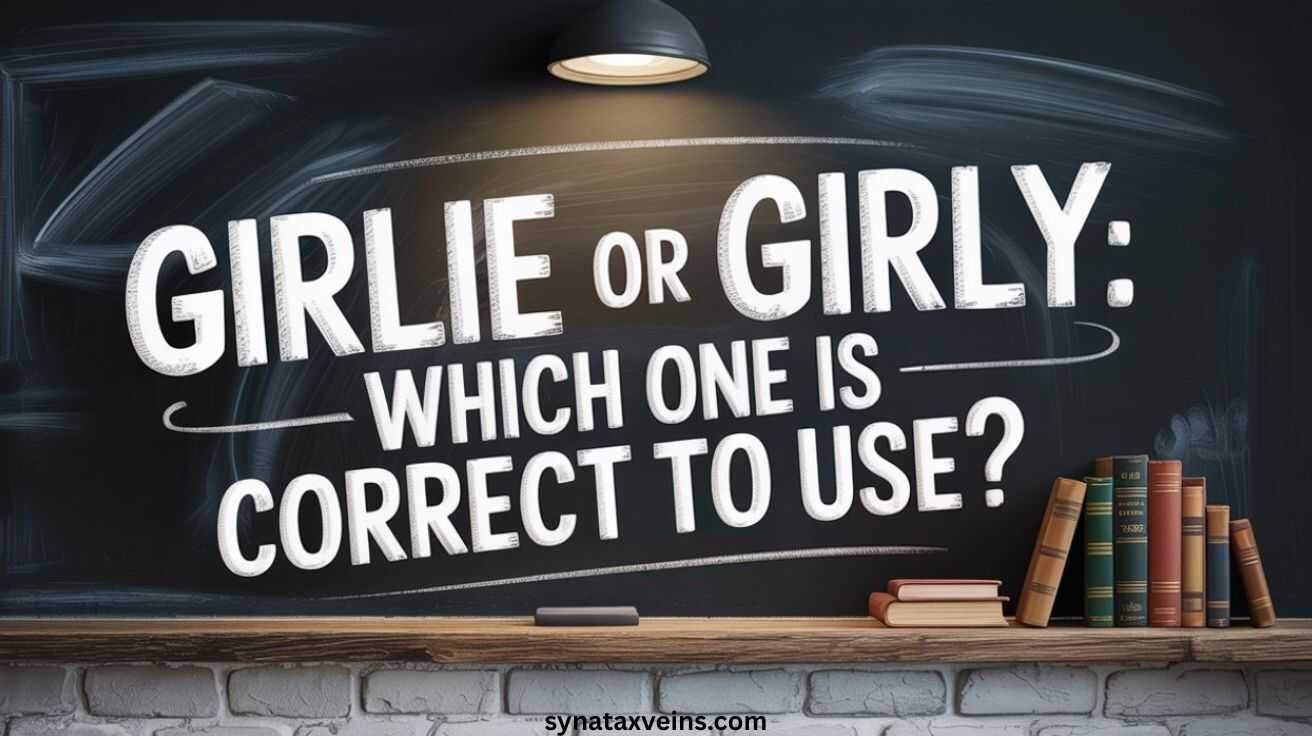Ever stared at the words girlie or girly and wondered which one is the correct to use? You’re not alone. Both terms look nearly the same, yet their meanings, tone, and contexts carry unique twists. Choosing the wrong one can make your sentence sound outdated or even awkward. That’s why understanding the meaning difference between them matters if you want your writing to flow naturally and sound modern.
In everyday English, small details can completely shift how words feel. One word may highlight a feminine and youthful vibe while the other could feel a little too playful nostalgic. Let’s dive deeper to see which option works best depending on tone, fashion, culture, and context.
Difference between Girlie or Girly

At first glance, girlie or girly look interchangeable. However, the subtle contrast lies in their tone. Girly is commonly used to describe something that’s associated with girls, like pink dresses floral patterns, a soft girly aesthetic, or anything showing a sense of playfulness. It carries a neutral or positive feel.
On the other hand, girlie has an older ring to it. Historically, it popped up in magazines and ads, sometimes objectifying women. Today, it may sound playful nostalgic, but it’s less common in modern writing. While not “wrong,” it often feels like a less suitable term compared to girly in American English.
What does girly mean?
The word girly refers to qualities often associated with girls—think light colors, delicate details, or feminine and youthful styles. It captures charm without being demeaning. For example, when someone says, “That dress looks so girly,” it highlights the youthful spirit and style of the outfit.
Unlike its twin “girlie,” girly has a more modern, friendly edge. It leans into themes of fun, amusement, and lively spirit, making it the more appropriate term when discussing fashion, culture, or personality.
Examples for Girly
Here are some simple examples to illustrate how “girly” works:
- She decorated her room with a girly aesthetic of fairy lights and soft pastels.
- That movie has a lighthearted, girly tone that makes it fun to watch with friends.
- Her handwriting looks neat and girly, full of swirls and curves.
- The boutique specializes in feminine designs with a playful girly charm.
- Their fashion show leaned heavily on a feminine and youthful vibe, almost dreamlike.
What does Girlie mean?
Girlie has a slightly different flavor. It once described magazines or imagery often linked to women in an objectified way. Over time, it also became a playful nostalgic word, often used in lighthearted teasing. It’s not completely outdated, but it can feel retro, whimsical, or reminiscent of older cultural trends.
In modern use, “girlie” might pop up in casual conversations or everyday usage when someone wants a fun, vintage feel. Still, “girly” has overtaken it as the correct application in fashion, media, and lifestyle.
Examples for Girlie
Here are examples to depict how “girlie” appears in sentences:
- “Come on, girlie, you know you can do better than that.”
- The diner’s decor gave off a girlie charm, reminding everyone of the 1950s.
- Old comic strips sometimes portrayed girlie characters in a playful, cartoonish way.
- He jokingly called his sister girlie when she teased him.
- Some vintage ads still carry that girlie magazine vibe, though it feels outdated today.
Table: Difference Between Girlie or Girly
| Term | Meaning / Definition | Tone & Usage | Common Examples | When to Use |
|---|---|---|---|---|
| Girly | Refers to something associated with girls, often describing a feminine and youthful style or quality. | Positive, playful, lighthearted, modern. | Girly outfit, girly handwriting, girly aesthetic. | Use when describing pink dresses, floral patterns, styles, or a sense of playfulness. |
| Girlie | Older spelling, sometimes viewed as playful nostalgic or slightly informal. It can feel whimsical or retro. | Informal, fun, sometimes old-fashioned. | Girlie magazine, girlie fun, girlie vibe. | Use when you want a retro or whimsical feel, or in cultural/fashion contexts where nostalgia fits. |
Everyday Usage in Modern English
In today’s world, girly wins the popularity contest. From TikTok aesthetics to fashion blogs, people prefer girly to describe the feminine connection with colors, trends, and vibes. It feels modern, youthful, and suitable.
“Girlie” hasn’t vanished, but it appears less frequently. When it does, it often leans into a whimsical or retro tone. So if you’re aiming for trendy and fresh, girly is the safer bet for context and preference.
Nuances and Tone
Tone matters a lot. Girly carries a lighthearted, fun, and spirited meaning. It highlights a youthful charm or feminine appeal without negativity. On the flip side, girlie may sound dated or slightly patronizing, depending on delivery.
For example, saying “That’s a girly dress” feels like a compliment. But calling someone “Hey, girlie” can come across as dismissive. These nuances make a big difference in tone and usage.
READ MORE >>> 58+ Roasts That Hurt And Rhyme: Guide to Savage Burns!
Social and Cultural Associations
Words reflect culture. Girly aligns with modern aesthetics, such as the girly aesthetic in fashion, social media, and lifestyle trends. It suggests fun, femininity, and youthful spirit.
“Girlie,” meanwhile, ties to older stereotypes. It recalls eras where girls’ things were minimized or made into a joke. While some still use it playfully, it lacks the feminine connection that girly strongly holds in today’s social landscape.
Girly vs. Girlie in Fashion and Lifestyle
In fashion, girly dominates. Magazines describe girly attire with lace, bows, or pink dresses floral patterns. Designers often highlight the feminine and youthful vibe in collections labeled “girly.”
“Girlie,” however, rarely appears in modern branding. If it does, it’s often for a retro-inspired design or nostalgic appeal. Lifestyle blogs, influencers, and ads almost always choose girly for its trendy and appropriate term.
Grammar and Pronunciation Notes
Both words sound nearly identical—pronounced as /ˈɡɜr·li/. The difference lies purely in spelling and tone, not in how you say them.
In American English, girly has become the correct to use form. British English occasionally sprinkles in “girlie,” but even there, girly is taking over in everyday writing.
Related Words and Synonyms
Other words can stand in for girly or girlie, depending on tone:
| Word | Tone | Usage Example |
|---|---|---|
| Feminine | Neutral/Positive | She wore a feminine dress. |
| Girlish | Youthful | Her giggle sounded girlish. |
| Ladylike | Formal | She displayed ladylike manners. |
| Dainty | Delicate | The teacups were small and dainty. |
These synonyms highlight different shades of style, look, and appearance without relying solely on girlie or girly.
Context Matters: When to Choose Each
Choosing between girlie or girly depends on context and preference. If you want to sound trendy, modern, and positive, go with girly. It works in fashion, lifestyle, and casual talk.
Use “girlie” when aiming for a playful nostalgic or retro vibe. For example, a vintage diner or comic strip might feel right with “girlie.” But in most professional or cultural settings, girly is the right use.
Real-Life Examples For “Girlie or Girly”
- Pop culture icons like Barbie thrive on the girly aesthetic.
- A 1950s diner may advertise with girlie nostalgia.
- Fashion blogs rave about girly outfits for summer trends.
- Old Hollywood ads occasionally use the word girlie, reflecting their era.
- Pinterest boards labeled girly style draw millions of followers.
These show how the two words surface in real usage.
Evolution and Modern Changes
Language evolves with culture. Decades ago, “girlie” appeared often in print media, especially in advertising. Over time, as people pushed against stereotypes, it began to fade.
Now, girly dominates the conversation, tying into fashion, design, and feminine and youthful trends. The shift reflects modern values: celebrating femininity without sounding outdated.
Frequently Asked Questions
Is it spelled girlie or girly?
Both spellings exist, but “girly” is the more common and modern form. “Girlie” is considered older and often carries a nostalgic or retro vibe.
Is it girly or girlie slang?
“Girly” is not slang; it’s a standard word to describe something associated with girls or a feminine and youthful style. “Girlie”, however, is sometimes used in slang or informal speech, often in a playful or nostalgic sense.
Is it my girlie or girly?
Saying “my girlie” is more natural in casual or affectionate speech. Using “my girly” sounds unusual unless you’re describing something feminine, like “my girly outfit.”
What is a girlie?
A girlie can mean:
- A playful term for a girl, often used affectionately.
- Something connected to girls’ things, like “girlie magazines” or “girlie fun.”
Who says girlie?
The term “girlie” is mostly used in informal speech, older pop culture, or playful conversation. People who want to add a retro, whimsical, or lighthearted tone might say it.
Can I call a girl girlie?
Yes, you can, but use it carefully. Calling someone “girlie” can sound affectionate in a friendly or romantic context. However, in some cases, it might feel patronizing, so context matters.
Conclusion
So, which is correct to use: girlie or girly? The answer depends on tone. Girly is the modern, positive choice for describing fashion, culture, and personality. It reflects a feminine and youthful energy and feels natural in today’s English.
“Girlie” still lingers, mostly as a playful nostalgic or retro word. But if you want to stay current and polished, stick with girly. Context, tone, and audience always guide the best choice.

Arabella Rose, admin of [synatax veins], makes grammar simple and fun! With expert tips and clear advice, she helps you write with confidence and clarity. ✍️📚

